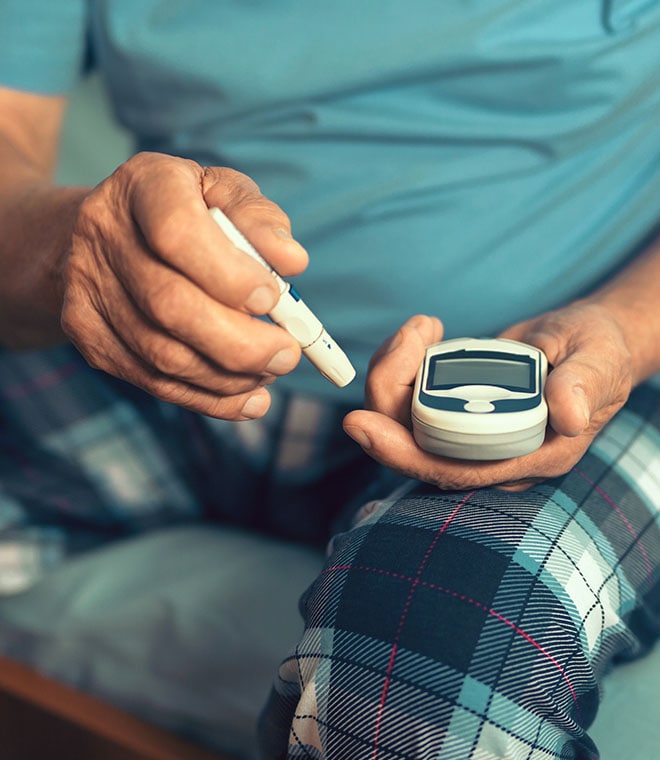Health
Diabetes and insulin: What’s the connection?
By Michelle Katz, MS, RD, Certified diabetes care and education specialist Dec 27, 2024 • 4 min
Insulin is a hormone that your body needs to convert food into energy. It also helps keep blood glucose levels within normal range. For people with diabetes, insulin therapy may also be a part of their treatment plan for managing the disease.
Insulin’s role in the body
Commonly called “blood sugar,” glucose is the primary source of energy for the body. For your body to utilize it for energy production, glucose needs to enter muscle, fat and liver cells. That’s where insulin comes in. Manufactured by beta cells in the pancreas, insulin allows cells to absorb glucose, reducing the amount present in your blood.
Insulin and the link to diabetes
Diabetes is a group of conditions in which blood sugar levels are abnormally high. Different types of diabetes are linked to insulin:
- Type 1 diabetes: In people with type 1 diabetes, the immune system attacks beta cells in the pancreas, making it unable to produce an adequate supply of insulin, leading to elevated blood glucose levels.
- Type 2 diabetes: This type of diabetes occurs due to insulin resistance, a condition in which fat, muscle and liver cells don’t respond to insulin properly. Insulin resistance reduces the body’s ability to absorb glucose, causing blood sugar levels to rise.
- Gestational diabetes: This type of diabetes occurs in pregnant women when the placenta releases hormones that cause insulin resistance. Gestational diabetes usually goes away after delivery. As with type 2 diabetes, this limits how much glucose cells can absorb and causes high blood sugar levels.
- Secondary diabetes: With secondary diabetes, an underlying medical condition, such as pancreatitis or cystic fibrosis, damages the pancreas and reduces insulin production. Without enough insulin, blood sugar levels rise.
Insulin replacement therapy for diabetes treatment
Insulin therapy replaces the insulin the body would normally make. For many people with diabetes, insulin replacement therapy is an important part of their treatment plan. Insulin replacement therapy supplies the body with insulin via a needle, injection, inhaler or pump. Treatment for type 1 diabetes includes taking insulin every day.
Healthcare providers may also prescribe insulin replacement therapy for people with other types of diabetes. However, they may first try to control blood sugar levels with other treatments or remedies, such as lifestyle changes, oral medications and GLP-1 agonist injections. Insulin replacement therapy often becomes necessary if these treatments fail to lower blood sugar levels.
Healthcare providers can prescribe different types of insulin based on how fast they work and how long they last. Some types of insulin act faster and are typically taken before meals, while others take effect more slowly.
Always talk with your healthcare provider about your insulin treatment. You can use your blood sugar readings from your meter or continuous glucose monitoring device (CGM) to determine your insulin dose and see how different foods and exercise affect your blood sugars. In addition, this information can help your provider monitor how effective your treatment is and make changes if necessary.
Updated December 2024.
Sources:
- https://my.clevelandclinic.org/health/body/22601-insulin
- https://my.clevelandclinic.org/health/diseases/24953-type-3c-diabetes
- https://kidshealth.org/en/teens/glycogen.html
- https://www.endocrine.org/patient-engagement/endocrine-library/hormones-and-endocrine-function/pancreas-hormones
- https://www.urmc.rochester.edu/encyclopedia/content.aspx?contenttypeid=85&contentid=P00344

